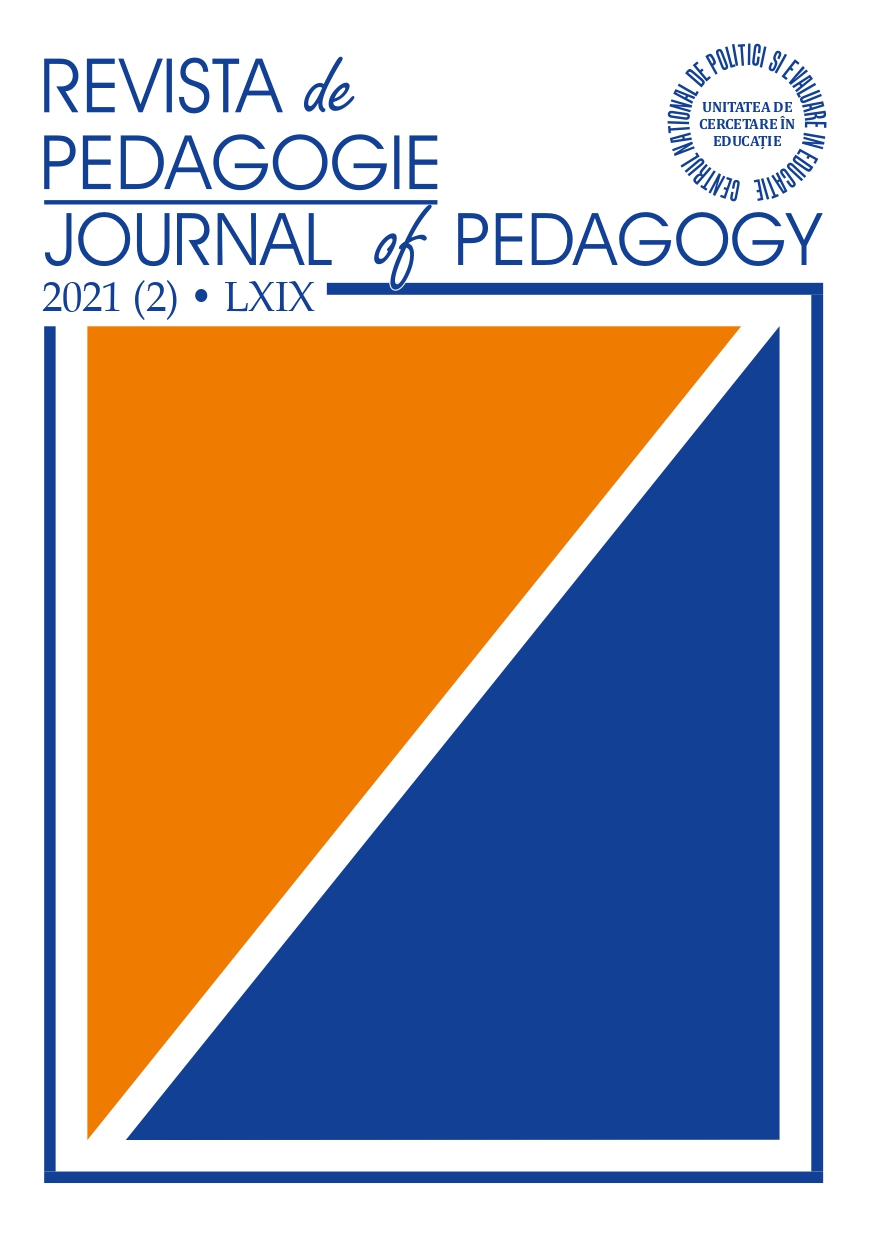PERCEPŢIA PROFESORILOR DIN ÎNVĂŢĂMÂNTUL PREŞCOLAR PRIVIND ASIGURAREA STĂRII DE BINE A COPIILOR, ÎN CONTEXT PANDEMIC
THE PRESCHOOL TEACHERS’ PERCEPTIONS ON THE CHILDREN’S WELL-BEING IN THE PANDEMIC CONTEXT
Author(s): Mihaela Guțu, Simona Lidia SavaSubject(s): Social Sciences, Education, Preschool education, Health and medicine and law
Published by: Centrul Național de Politici și Evaluare în Educație
Keywords: children’s well-being; Covid-19 pandemic; happiness strategies for children; preschool education; teachers’ perception;
Summary/Abstract: Well-being, a concept so often discussed, has increasingly come to the attention of specialists and practitioners, especially during the pandemic period whose magnitude has significantly influenced the well-being of all of us. The purpose of the comparative-correlational study was to investigate the perceptions and practices of teachers in Romanian preschool education regarding their role in ensuring the well-being of preschoolers in kindergarten, in the context of the COVID-19 pandemic. Thus, starting from the theoretical framework that delimits the factors that influence the well-being at this age (Aulia et al., 2020; Kwi-Ok et al., 2020; Sönmez & Ceylan, 2016), we used The Scale of Self-assessment of Wellbeing - IASB (Rodawell, 2019), developed by the University of Bucharest within the Rodawell project, and The Scale of Happiness Strategies for Children Used by Preschool Teachers - HSCPT (Sapsağlam et al., 2019). The online questionnaire was answered by 149 teachers for preschool education, especially from Timiş county. The results of the study (analyzed by The Independent-Samples T-Test, ANOVA One-Way, Spearman Correlation) highlight the existence of a positive association between perceptions and practices of educators in ensuring wellbeing, but also the existence of statistically significant differences between teachers’ practices in urban vs. rural environment, in the sense that, although they perceive children’s well-being similarly, rural teachers tend to use happiness strategies more often. At the same time, teachers’ perceptions differ depending on how the teaching activity is carried out in a pandemic context: the self-perceived role and the practices dedicated to ensuring well-being are more intense in hybrid and online format than the traditional one.
Journal: Revista de Pedagogie
- Issue Year: LXIX/2021
- Issue No: 2
- Page Range: 79-99
- Page Count: 22
- Language: Romanian

